by Nick Fox
Every year when I read the Iliad with my students, I pick up a new translation. I laugh out loud with delight when I read fresh characterizations of old characters. Odysseus described as a complicated man or Agamemnon as a drunkard. I never thought of that before, but, yeah, it fits! Also, I love it when ancient heroes or villains shout contemporary phrases. “You’re both whining,” says Nestor to Agamemnon and Achilles. Did ancient Greeks whine? Of course they did. Then of course I love comparing translations and seeing how translators grasp the tragedy of the poem.
This year I read Stephen Mitchell’s translation and immediately loved it. Mitchell satiated my desire for a story that I already knew, but tells it with new energy. His text goes primarily for speed with the contemporary, 21st century English reader in mind. He simplifies the sentence structure and shortens many of the long-winded phrases. ‘Extra words’ are even cut out in order to make the poem flow. For example, Mitchell’s translation doesn’t contain any of the famous epithets for heroes or gods. So you won’t read “swift-footed Achilles” or “ox-eyed Hera” in his translation. Also, he takes out the patronymics (“Agamemnon, son of Atreus”) and even some of the familiar adjectival phrases, such as “flashing-helmeted Hector” and “single-hoofed horses.” According to Mitchell, the “extra words” get in the way of the flow of the poem and the reader knows who the characters are without these descriptors. It works. I didn’t miss these details. His translation is a remixed Iliad set in cut time.
On top of the tempo up-tick, Mitchell also includes helpful details that clear up particular characters’ internal motivations. For example, after Patroklos dies trying to storm Troy by himself, Achilles sits by his ship, ignorant of the death. Here is Richmond Lattimore’s translation:
[Achilles] had not thought that Patroklos would storm the city without himself, nor with himself either; for often he had word from his mother, not known to mortals.
(Lattimore 17:406-408)
That phrase “nor with himself either” is hard to figure out. Also, what word from his mother does Achilles have? That neither Patroklos or Achilles will storm Troy? Did Achilles assume that he and Patroklos would not storm Troy because they would have returned home? Is this another tragic layer of Achilles’ attempt to control Fate? In Lattimore’s translation, we’re not exactly sure what Achilles knows. Here is how Mitchell translates the passage:
[Achilles] never expected that Patroclus would try to storm the city without him, or with him either, since many times he had heard his mother say that according to Zeus’s plan Patroclus would never take part in Ilion’s fall.
(Mitchell 17:402-406)
Mitchell gives the reader an extra clause showing that Achilles knew that Patroclus would not help take Troy. Perhaps Achilles thought this was because Patroclus would be home, away from the carnage. No matter what Achilles thought, he does not give Patroklos this very important piece of information, and Achilles is blind to the role he plays in his dear friend’s death. In the end, this is what makes all the difference for Achilles.
Although I appreciate the improvements to the flow of the poem and character psychology, I noticed other details that challenged what I see as some of the crucial aspects of the poem, such as the tragedy of death during war. More specifically, the tragedy is intensified by the inescapable finality of death and how Achilles deals with that finality. Mortality and the finality of death are center stage for the humans in the Iliad. To wish anything else – reincarnation or a positive afterlife – takes away from the tragedy of the characters in the Iliad. When Andromache mourns Hector’s death she recognizes that there is no more hope. “My husband, you died so young and left me behind, a widow, with our beloved child just a baby, and I doubt that he will ever become a man. Before that, Troy will be plundered and burned, because now you are dead, the one man who could have saved us” (Mitchell 24:715-722). The problem is not only that Hector chose to fight outside of the gates, but also now that he is dead, he can do nothing to help his family or city. Death is final.
In the Iliad, a hero can no longer help those they love by dying. Achilles understands this, but his problem is the reverse of Hector’s. Whereas Hector can no longer protect his city and living family, Achilles, while he is still alive, can no longer protect or do anything for his dead friend. Now that Patroklos is dead, Achilles has lost the opportunity to help Patroklos. Again, death is final. No more action allowed. On the fields of Troy, you don’t get a second shot to help out loved ones once they die. All you can do is bury them and mourn the loss.
Mitchell’s translation obscures this aspect of the story. In doing so, he lightens some of the moral and tragic impact of Achilles’ resulting grief from failing to protect his friend on the battlefield. In the story, Achilles mourns the death of Patroklos and holds off on burying Patroklos’s body until he completes a list of grisly deeds, such as sacrificing twelve living Trojans, killing Hector, and disgracing his body. (The gods, in one of their few noble actions, don’t let the physical mutilation happen to Hector, no matter how hard Achilles tries to desecrate the body.) Achilles puts off the burial of Patroklos, and Achilles sleeplessly lays next to his dead friend’s unburied body at night. Eventually, Patroklos’ spirit visits Achilles to ask for a burial. Achilles assents and then asks Patroklos to stand next to him so they can mourn together. Here is how Lattimore translates the scene:
“So he spoke, and with his own arms reached for [Patroklos’ spirit], but could not take him, but the spirit went underground, like vapor, with a thin cry, and Achilleus started to awake, staring, and drove his hands together, and spoke, and his words were sorrowful: ‘Oh, wonder! Even in the house of Hades there is left something, a soul and an image, but there is no real heart left in it’” (23:100-104).
To me this passage deepens the sting of the finality of death. Sure there is a spirit that can visit the living, but that visitation brings no comfort or resolve to the living. In fact, the visit actually just exacerbates Achilles’ own suffering and feeling of loss. Again, I feel this is key in order to experience the sad finality of death that is on display in the Iliad and Lattimore captures it poignantly in this passage. Achilles initially has some hope, but that hope quickly disappears – just like Patroklos’ ghost – as soon as Achilles tries to grab on to it.
Here is how Mitchell deals with the scene:
He reached out but could not touch [Patroklos’ spirit]. The spirit vanished like smoke and flew underground, squeaking. At this Achilles awoke from his sleep in astonishment and cried out, “So something exists then, even after we die!”
(23:98-101)
The line that is omitted (“but there’s no heart in it”) makes all the difference in my mind. What is life after death without heart? Nothing. Mitchell has Achilles exclaim, arguably hopefully, that “something exists!” Unfortunately, that seemingly positive exclamation and realization is not in any way followed up or built upon in the rest of the poem. Maybe one could read Mitchell’s exclamation of Achilles as a delusional hope of a strong man broken by his sorrow. Perhaps. But to me, Achilles soberly accepts the finality of death at the end of the story. When he gives Hector’s body back to Priam he doesn’t say, “Don’t worry old man, something exists!” Instead, Achilles tells the old man to eat, because that’s what the living do. We can’t do anything once we’re dead. The sad finality of death in the Iliad is a tragic pillar of the poem. There’s the rub about fresh translations — they may bring new life and energy, but something essential might be left out. Mitchell’s translation has the flow and speed that will attract a contemporary reader, but in Achilles’ words, there’s no heart in it.
by Nick Fox
Every fall I read the first stanza of the Iliad out loud to my students: “Sing, Goddess, the Anger of Peleus’ son Achilles / and its devastation…” (Iliad I:1-2). I ask them what the poem is about and eventually someone states the obvious: Achilles’ anger. Then I ask how the poem ends. Someone says with a horse. He’s wrong. In fact, most the memorable cultural highlights from the Trojan war—the abduction of Helen, the Trojan Horse, the Death of Achilles—never show up in the Iliad. Even more discouraging, no glorious gains. King Arthur gets Camelot, Beowulf saves Heorot hall, Aeneas gets Rome. What does Achilles get? He gets angry, mourns his dead friend, and then brutally kills a lot of Trojans. As far as a war story goes, the Iliad is a killjoy.
What makes the Iliad a great war epic then? Why is it folklore that Alexander the Great, one of the greatest military conquerors of the Western world, slept with the Iliad (in scroll form, mind you) under his pillow so that he might fight as the reincarnation of Achilles? Why is Achilles remembered as the great warrior who won glory at Troy? To me, the gainless brutality and relentless sorrow written about in the Iliad doesn’t reaffirm the glory gained in war but squashes it. And this is, as far as I can tell, what we get from the first great war epic: the demystification of the glories of war and the tragic delusion of Force.
In her famous essay “The Iliad, or, The Poem of Force,” Simone Weil says the true hero of the Iliad is Force. By Force she means, “It is the x that turns anybody who is subject to it, into a thing…Somebody was here, now nobody is here at all.” The Force on display in the Iliad is not the mechanized and industrialized warfare we know. Instead, it is spears and swords ripping and puncturing flesh, vividly. Here is an example:
Hippolochos sprang away, but Agamemnon killed him dismounted,
(Iliad XI: 145-147)
cutting away his arms with a sword-stroke, free of the shoulder,
and sent him spinning, like a log, down the battle.
The Iliad is chock-full of gruesome descriptions of bronze cutting limbs and shattering bone. This stuff may just be an example of something like a Tarantino e.g. Kill Bill or Django fascination with graphic human carnage. Or a Mel Gibson war movie interested in giving the most brutal war examples on record. Gahw! Look at all that blood! In some ways, I think Homer is interested in the gruesome spectacle of Bronze Age combat. But, unlike Tarantino and Gibson, Homeric death scenes are especially visceral for the audience because the warrior getting gutted is a man with a name, a lineage, and a history. He’s not just an anonymous human body -or whole group of bodies- exhibited to bleed and die. There are no anonymous deaths in the Iliad. Every death is particular. Although the individual warriors may reduce each other to objects, Homer refuses. Here he tells of a pair of brothers, one of whom will shortly die.
There was a man of the Trojans, Dares, blameless and bountiful,
(Iliad V: 9-12)
a priest consecrated to Hephaistos, and he had two sons,
Phegus and Idaios, well skilled both in fighting.
These two breaking from the ranks of the others charged against Diomedes.
These young men enter under the contract of Force, and Phegus dies in the dust only a few lines after we learn who he is. Someone has become nothing. Although the Force of combat destroys young men, Homer resists the Force by reminding us of a man’s identity before he is slain. Still, Force in war takes individuals and turns them into dust. There is only death, and this is most clearly seen in the waring rage of Achilles, the incarnation of war.
Achilles is the ultimate weapon. As one of my students said, he is like a nuclear weapon released on the Trojans. He kills without pity or discrimination. Here is Homer’s description:
As inhuman fire sweeps on in fury through the deep angles
(XX: 490-494)
of a drywood mountain and sets ablaze the depth of the timber
and the blustering wind lashes the flame along, so Achilles
swept everywhere with his spear like something more than a mortal
harrying them as they died, and the black earth ran blood.
As you read about Achilles’ exploits, you can hear Oppenheimer saying, “I am become death, destroyer of worlds.” As an incarnation of war, Achilles demands ultimate, sweeping annihilation. Three chapters of killing culminate in the death of Hector, the prince and protector of Troy. Achilles attaches Hector’s limp body to the back of his chariot and drags the body around the walls of Troy for his family to witness.
A cloud of dust rose where Hektor was dragged, his dark hair was falling
(XXII 401-407)
about him, and all that head that was once so handsome was tumbled
in the dust; since by this time Zeus had given him over
to his enemies, to be defiled in the land of his fathers.
So all his head was dragged in the dust; and now his mother
tore out her hair…and his father beloved groaned pitifully.
This iconic disgracing of Hektor’s body intentionally furthers the sorrow of Hector’s surviving family members. It does little for Achilles. After all the Force Achilles brings against the Trojans, he is still angry. This destruction has brought him no respite, and he cannot fill the void in his heart that was caused by the death of his friend, Patroklos. As Weil writes: “Force is as pitiless to the man who possesses it, or thinks he does, as it is to its victims: the second it crushes, the first it intoxicates.” Achilles subjugates a slew of Trojans to the equation of Force, and in doing so he loses all sense of pity for other human beings. Ironically, pity turns out to be the one thing Homer thinks can lessen a small portion of Achilles’ suffering.
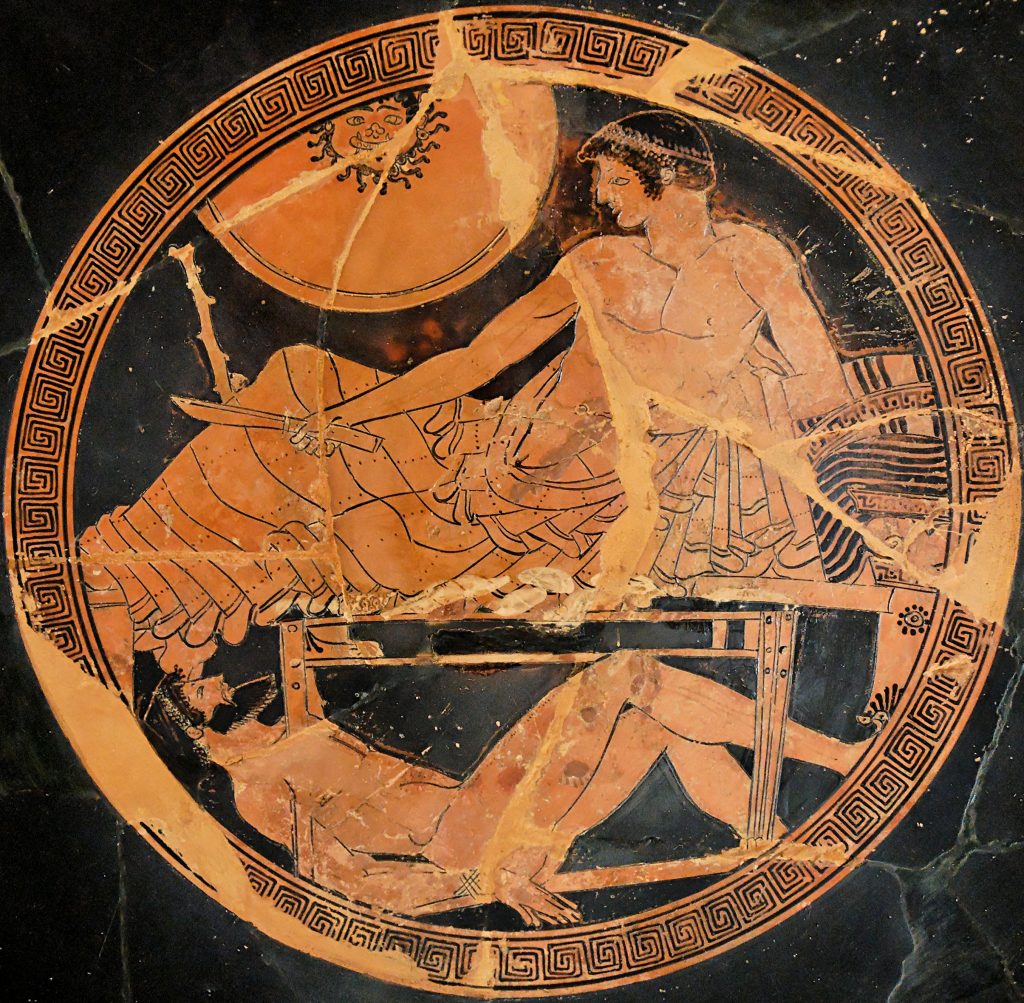
This is the truth that Achilles swallows at the end of the poem. Force only brings more sorrow, and this does nothing to quell his own sorrow. Force exacerbates sorrow and can never end it. The Iliad is not an anti-war story as we might conceive it with a clear moral lesson about the sorrows of war. I don’t think Homer thought he could end war, just like he couldn’t stop floods or forest fires. But, by putting violence and sorrow on display in the way Homer does, he saps war of its glorious claim and forces the reader of the poem to witness a mother and father in despair.
Life in war is suffering, Achilles tells Priam at the end of the poem. Weil, in a terrible historical predicament herself (born Jewish, she is living in Nazi occupied France) also echoes Achilles’ sad realization. “Perhaps all men, by the very act of being born, are destined to suffer violence; yet this is a truth to which circumstance shuts men’s eyes. The strong are never absolutely strong and the weak are never absolutely weak, but neither is aware of this. They have in common a refusal to believe that they belong to the same species.” Perhaps humans can’t end violence, but they can transcend the dictates of Force and be godlike in lessening this sorrow. This is the change Achilles bears witness to at the end of the poem. When Priam enters Achilles’ tent to ask for Hector’s body back, Priam grabs Achilles’ knees and begins his plea:
Achilles like the gods, remember your father, one who
(XXIV: 486-7)
is of years like mine, and on the door-sill of sorrowful old age…
Confronted by Priam, Achilles then sees his own lonely father in Priam’s face, and returns the body of Hector to the Trojans. Achilles forgives his enemy and discovers pity.
The more I read the Iliad, the more I am convinced that the poem does not glorify war in any meaningful way. Instead, the poem exposes us to gratuitous pain, destruction, and suffering. The poem is not epically cool; it is epically sad. In this, the Iliad sets a precedent by telling a war story with all the gore but no glory. Instead, it points out the sadness and vanity of the endeavor. This precedent of overwhelming sadness continues in many of the other great war novels of Western literature. Books like Red Badge of Courage, All Quiet on the Western Front, and The Things They Carried, are common in our high schools and challenge the idea of glory in war. Glory and military virtue are not the main subject of many of the war novels we, as a culture (or at least high school teachers), consider great. Is a great war novel primarily an anti-war book then? Not necessarily . For me, what makes the Iliad as an war-epic is that it can help us rediscover, or even reimagine, a part of our humanity. This is what we see in Achilles at the end of the poem.
Achilles learns through his own sadness how to become a human that extends pity even to his enemy. In doing so, he rejects his god-given power that subjugates those weaker than him to Force. I see this as heroic. Achilles shows moral imagination by going beyond the glory of his warrior culture, relieving the sorrows of war, rather than exacerbating them. By the end, Achilles understands the limits of Force and moves beyond those limits by practicing an empathetic kindness toward his enemy, Priam. Achilles only understands the limits and delusions of Force by living them out. Perhaps only a powerful man like Achilles can show us this because he has the full control of Force at his fingertips. In the end, Homer has Achilles use his power to heal a wound he created, and in doing so, he shows us what is meaningful about being part of the human species.
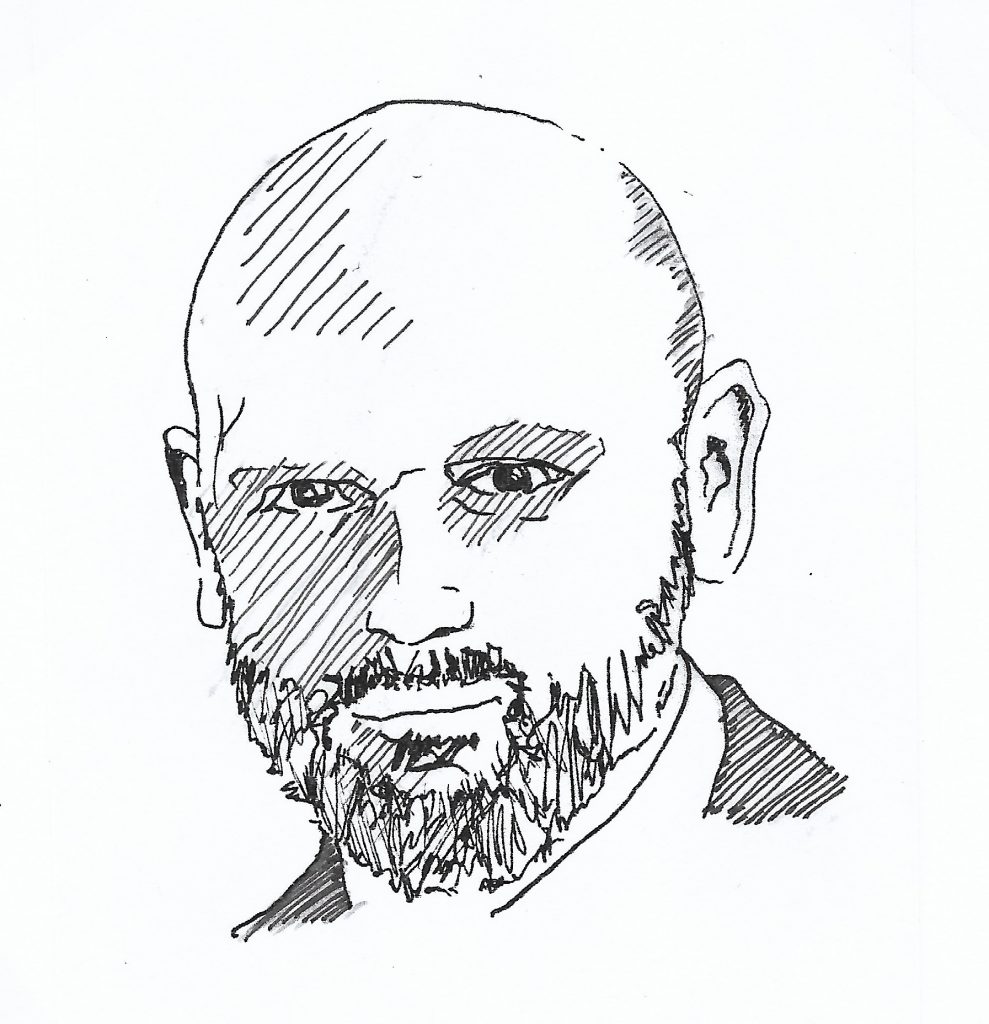
Nick Fox teaches Ancient Greek Literature and Philosophy as well as Studio Art. He also serves in the Army Reserves and teaches Military History at the University of Minnesota. He lives across the street from a beautiful graveyard in Minneapolis with his wife and daughter and son.
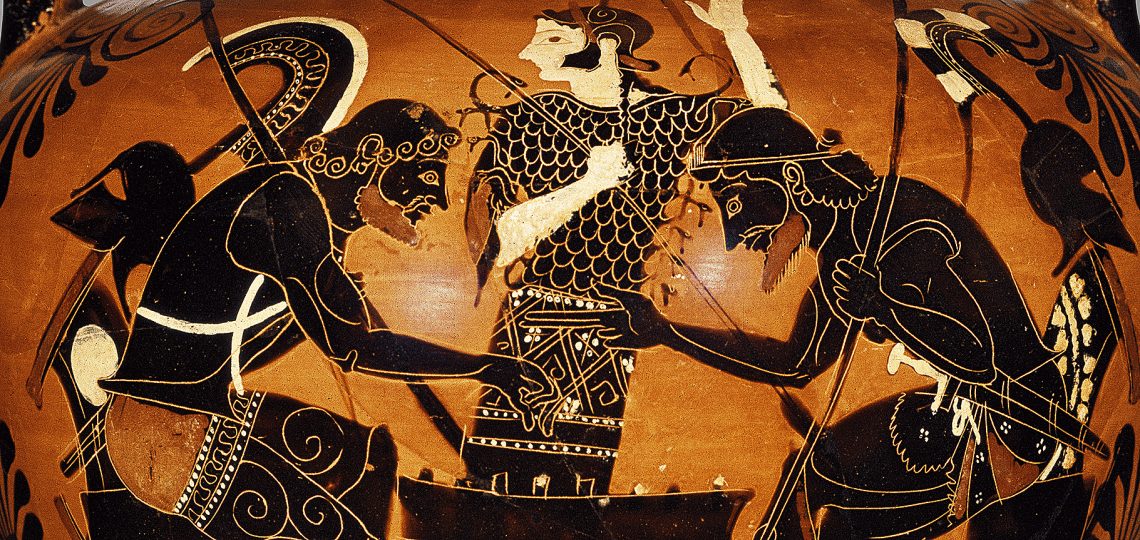



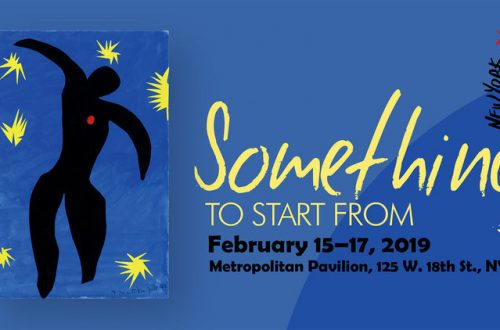
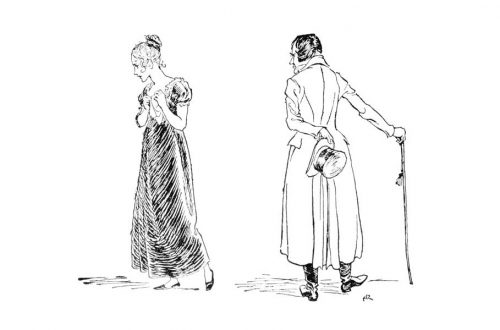
2 Comments
Cecilia Nicklaus
Thank you so much for this insightful reflection on the Iliad and how it has been brought into our culture. My Latin professor often reminds me, as you have pointed out, that translating and translating poetry in particular is more philosophic than procedural. However, I wonder if (and sometimes worry that) every translation is just a completely new poem (and rarely as good as one it is imitating in concept, form, plot, et cetera). But, your reflection presents translations as indirect commentaries of the original that aid and enhance the original regardless of where they fall in their degrees of interpretation and literary accuracy. Horace in the Ars Poetica says that poetry should both instruct and delight. It seems that translations not only instruct and delight on a primary level of telling a human story but secondarily as well, telling the story of how the human story continues to be told. Perhaps even if the translation is less instructing and delightful than the original, the added dimension of the translators wrestle with the text adds new lessons and joys.
Abbey
Thanks for this, Nick. I’m still thinking I want to read the Mitchell for grins.